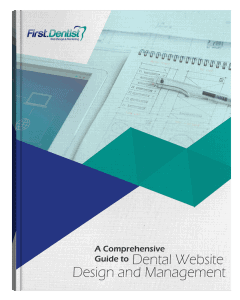Inbound Links for Dental Websites

This is the fourth part of our Local Search Engine Optimization (SEO) series on optimizing your dental website. You can view the previous posts here:
- Local Search for Dentists
- Google My Business for Dentists
- SEO for Dentist Websites
- Citations for Dental Practices
- Reviews for Dental Practices
- Local Seo and Social Media for Dentists
- Local Search for Dentists and Behavioural Signals
Inbound links are a critical part of your search engine optimization efforts as a dental practice. Link building is one of the most controversial areas of SEO, and there is an abundance of conflicting information online. Some of that information is downright dangerous and, if followed, has the potential to harm your SEO efforts. Even Google states that you shouldn’t build links. However, Google has used inbound links as a primary factor in ranking for a long time. What should a dental practice do? If you want your dental practice to rank ahead of your competition, you’re going to need to build links. This article clarifies what dentists need to know about this critical element of improving your website’s visibility in Google.
Article Content
What are Links?
Why are they important?
What are good links?
What are bad links?
Understanding your link profile
Valuable Links for Dentists
Guidelines for Building Links
Specific Types of Links
The Future of Link Building
Priorities for dental practices
Link Building Resources
Summary

What are links?
There are several different types of links on websites. The three primary types are:
- Internal links
- Inbound links
- Outbound links
An internal link is a link from one page to another within your own website. For example, here’s an internal link to our Local Search for dentists blog post. An outbound link is a link from your website to another external website online. For example, here’s an outbound link to Ahrefs.com, a link building tool we use at firstdentist.com. An inbound link is a link that is hosted on an outside website that will direct a user to your website. Inbound links create a profile that is indexed and analyzed by search engines. It’s important to understand how links work and why they are so important.
Why are inbound links important?
Links are the primary way search engines like Google find and index websites on the internet. They also help Google understand the value of those web pages. Links act as endorsements for the credibility of a website. If other high-quality, popular websites link to a site, the search engines will assume that site is also high-quality.

Websites with more high-quality links are likely to rank higher in the search engine results pages. This translates to better visibility online and more new patients. Local SEO industry experts believe inbound links are the top differentiator for highly ranked sites.
The other reason inbound links are important is that they can act as a valuable source of referral traffic. If relevant sites link to your website, for example from another local health practitioner or local newspaper, potential new patients might visit your website. Search engines understand and value these types of links.
How to evaluate link building opportunities
Regularly acquiring new links is an important part of SEO for all dental practices. This doesn’t mean that you need to get any link possible, or as many as you can. It’s important to evaluate the link opportunity and be discerning. There are several criteria you need to understand in order to choose and acquire good links.
What makes a link a good link?
There a few important characteristics that most good inbound links have:
- They come from a related or relevant website or webpage (relevance)
- The linking websites are authoritative and popular (page or domain authority)
- The link might bring you traffic and customers (human value)
- Links have appropriate or natural anchor text (search engine value)
The more relevant a website or webpage is to your dental practice, the more valuable that link is. Links from manufacturer directories in Russia don’t have much value to a dental practice in Seattle, but links from a local dental specialist that refers patients do. Your nephew’s baseball card blog won’t help much either. As you can see, relevance is essential in building high-quality links.
Anchor text is the text that is used in the link. In the past anchor text held some value to search engines but SEOs took advantage of this tactic. Google understands the context of the content around the anchor text so excessively optimizing anchor text is not necessary and can even bring a penalty. Don’t create links with anchor text like best dentist washington.
We’ll discuss the specific types of useful dental practice links later, but local organizations and business links, dental industry links, and other authoritative website links are typically valuable links.
What makes a link a bad link?
The SEO industry has a bad reputation – and rightly so. As a dental practice, you are probably bombarded by email spam from SEO and other online advertising agencies. There are dozens of sites like Fiverr that offer hundreds of links for next to nothing. Almost all of these links and all of the companies out there promoting these services are worthless. Not only do they lack value, but they can also end up damaging your website rankings permanently. It is extremely important to work with a reputable company that has a code of ethics and a sustainable, holistic approach to SEO. If it sounds too good to be true, it probably is! High-quality links require effort and time. Some of the characteristics of bad links include:
- Links from irrelevant websites
- Poor quality website links (from a website with a low page or domain authority)
- Spam links
- Links you need to pay for (black hat)
- Overly-optimized anchor text (best dental office, best dentist, etc.)
- Link networks or private blog networks or link wheels
- Trading links with unrelated businesses
Almost every inexpensive, cheap or black hat SEO service relies on these types of links. No matter how much you may be tempted, avoid them like the plague. There is no replacement for public relations, networking, outreach, and naturally attracting links with great content.
How to understand your link profile?
firstdentist.com uses a wide variety of tools to discover and analyze the value of the links that point to your website. We also use these tools to benchmark your competitors on a local and industry level. Contact us for a free strategy session where we can review your link profile and analyze your competition.

Your link profile can uncover a variety of different issues. It can help you find good links coming to your website and also identify undesirable links. It can take a seasoned SEO professional to interpret the results but you can get some preliminary insight with free tools. If you are curious, here are some free tools to analyze your links:
Valuable links for dentists
Google says you should never build links. The unfortunate truth is that sitting back and waiting for other websites to link to yours just doesn’t work. This article can help you find the opportunities that will help you start attracting high-quality inbound links.
Guidelines
Remember, there are several important guidelines for when you start building links.
- Look for links that will actually send you customers
- Avoid services that sell links or trade links
- Don’t feel you need to build links too quickly
Twenty high-quality links are all most dental websites really need to rank well. Plan on acquiring a few links every two to three months. While it may be a lot of work up front, the reward will last for years
Specific types of links
We’ve broken down the types of dental links in different categories. There are many more than are on this list, and your opportunities are only limited by your creativity and outreach.
- Industry links
- Certification boards and industries
- Distributors
- Vendors (testimonials)
- Interviews and guest columns

- Local links
- Local businesses
- Local associations
- Charities
- Complementary businesses
- Activities to attract links
- Host an event
- Networking
The future of links
Link building is one of the most important activities for SEO and it will pay dividends if you do it properly. It is an investment of time and money. However, it can be the key differentiator in your local market. Being the top listing in your city will have a profound impact on the flow of new patients into your practice. Google is continually developing increasingly sophisticated methods of ranking websites but links are likely to continue to be an important factor in the foreseeable future.
Signals such as Google My Business phone calls, directions, and tracked visits (from Android phones) may start to replace some of the link signals used to rank your website, but link signals will remain important in the near future. These changes will make low-quality links even less valuable over time. High-quality links are becoming harder to acquire, which may actually make them more valuable. We expect efforts placed in this area will bring a positive return on investment for dental practices.
Priorities for dental practices
If it looks like there is a lot of work you can do, you are correct. How do you prioritize this work?
- Improving your link profile requires a commitment to the link building process. Networking, engagement, and public relations are needed on an ongoing basis. Plan on a focused initiative every two months for the next couple of years. Make it part of your practice’s marketing.
- Commit to a vision of building 10 to 20 high-quality links over time.
- Identify and work on a couple of easier link opportunities every month.
- Create a link profile goal, benchmark against local leaders, and put your plan into action.

- Develop a content strategy: create content that people will link to (i.e. pros and cons of new treatments, controversial issues, authoritative educational articles/ultimate guides, linkable assets, videos, press, media releases, etc.).
- Guest blogging: write for authoritative sites that will include a link back to your site.
- Identify influencers in your dental field and build a relationship.
Link building resources
Here are several useful sources of information about link building if you’d like to read further:
- https://ahrefs.com/blog/link-building/
- http://www.localvisibilitysystem.com/2015/02/05/the-best-bleepin-local-link-questionnaire/
- https://citationlabs.com/the-guide-to-local-link-building-campaigns/
The best resource to guide your dental practice is firstdentist.com. We are experts in dental link building. Contact us for a free SEO strategy session, which includes a review of your link profile and recommendations.
Summary
- A solid link foundation is essential for search engine optimization success
- Focus on acquiring links that will refer potential customers to your website
- Benchmark your competition and come up with a plan
- Create links relevant to the dental industry
- Create locally relevant links
- Produce content regularly and network with your peers
Guide to Dental Website Design

Subscribe and download our ebook that covers everything you need to know to build an incredible website for your dental practice.
